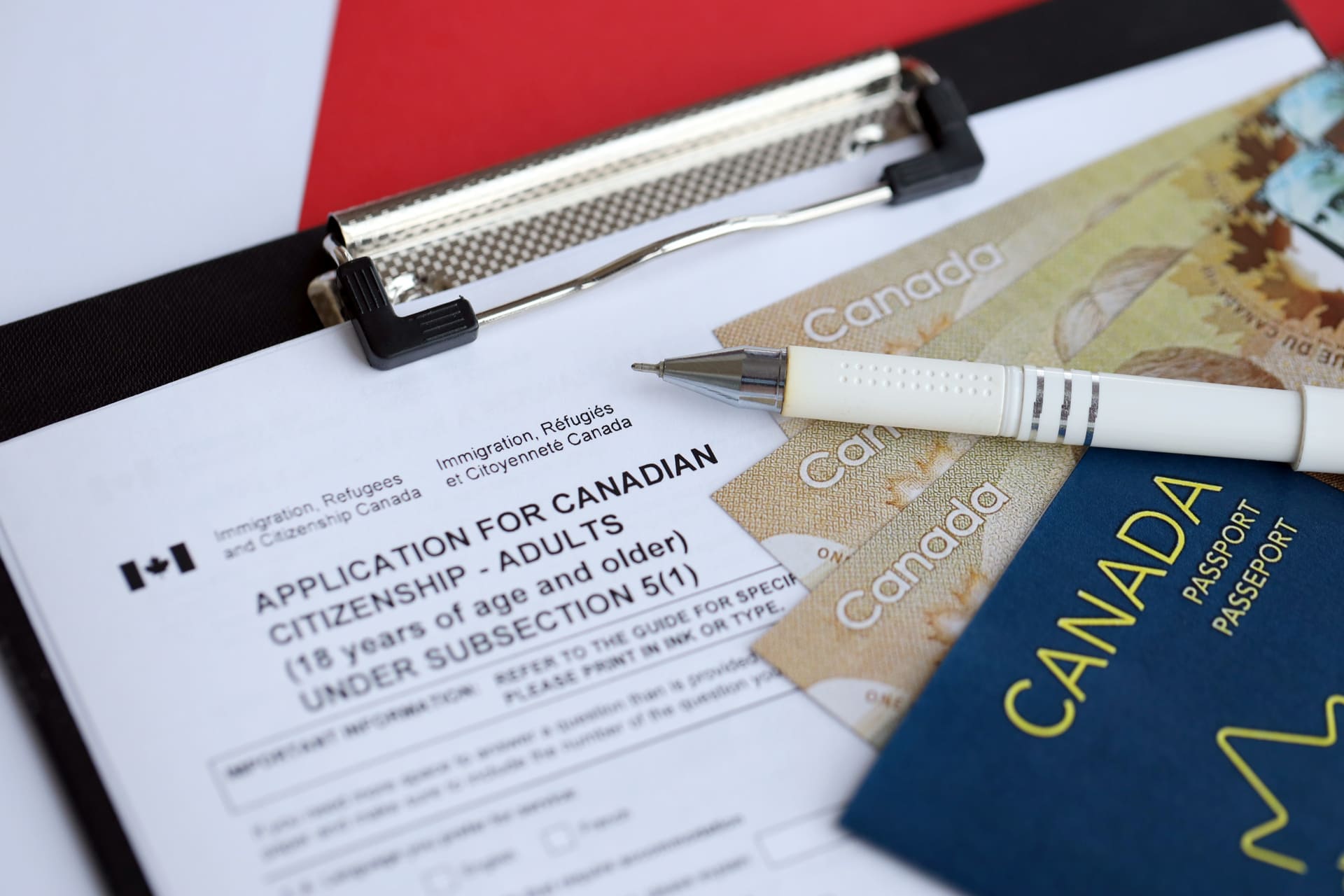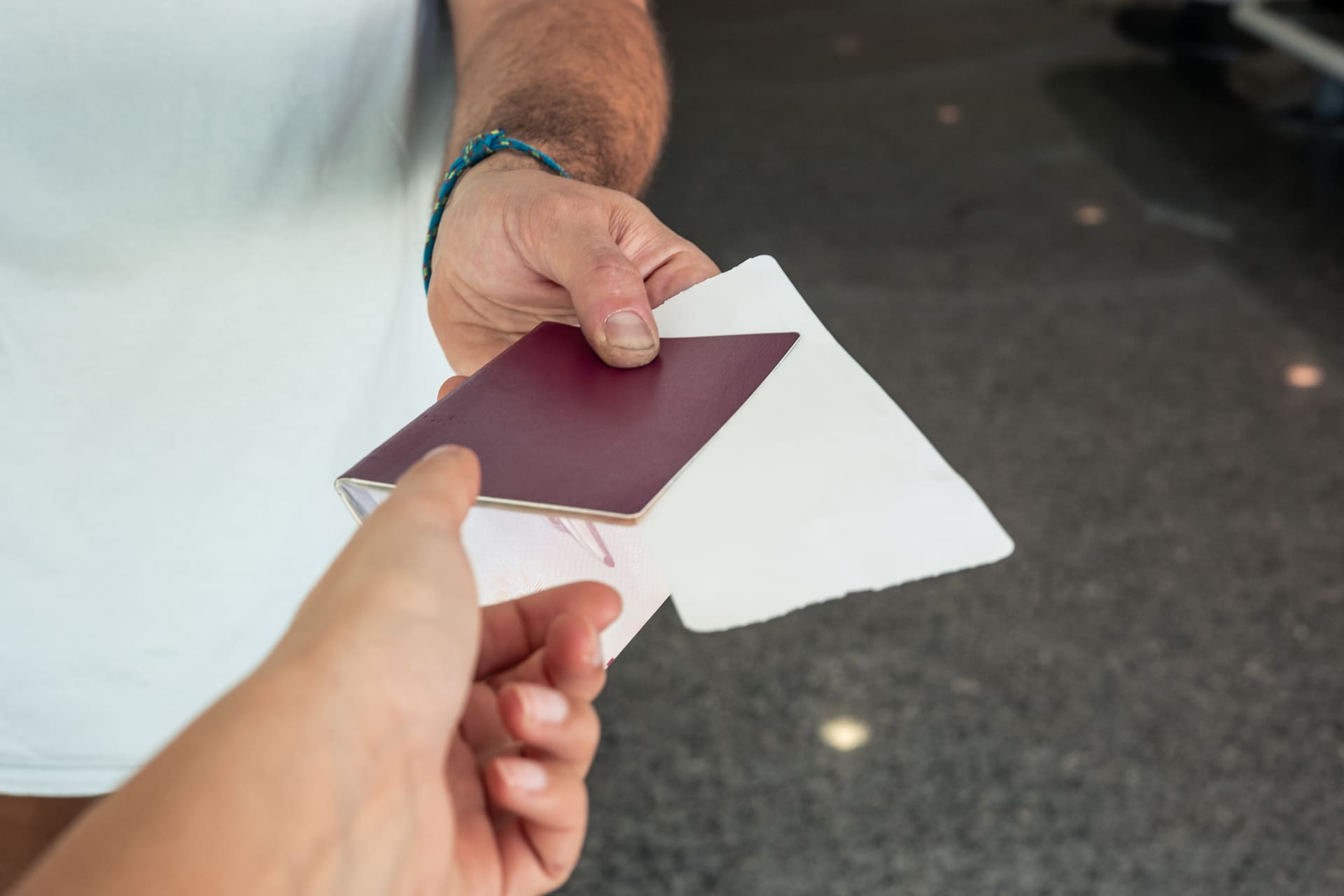
To qualify for Canadian citizenship, you generally need to:
At Kingwell Immigration Law, we guide clients through every step of this complex process, whether you’re applying through the standard naturalization route or dealing with exceptions such as citizenship by descent, adoption, or military service.
Our lawyers ensure that all requirements are met properly and that no detail is overlooked.
Canadian citizenship offers numerous benefits, including the right to vote, unrestricted travel with a Canadian passport, and protection from removal from Canada.
Contact our immigration lawyer in Toronto for personalized guidance on your path to Canadian citizenship.
Canadian citizenship applications involve intricate legal requirements that can be overwhelming without proper guidance. We provide comprehensive legal support for all aspects of the citizenship process, from initial eligibility assessment to Federal Court appeals if your application faces challenges.
Our immigration lawyers have extensive experience handling complex citizenship cases, including situations involving inadmissibility issues, procedural fairness concerns, and appeals to higher courts. We understand that each client’s situation is unique and requires a tailored legal strategy.
The difference between Canadian citizen vs permanent resident status is important for determining when and how to apply. Our team guides clients through this decision and ensures they meet all requirements before submitting their applications.
✔️ If you’re facing challenges meeting any citizenship requirements, our experienced immigration lawyers can assess your options and develop strategies to strengthen your application.
Canadian citizenship eligibility involves meeting several strict legal requirements established under the Citizenship Act.
Most applicants must first obtain:
✔️ Our legal team can assess which citizenship requirements apply to your specific situation and guide you through meeting these eligibility criteria effectively.

There are three main pathways to obtain Canadian citizenship, each with distinct legal requirements and processes. Our lawyers can determine which pathway applies to your situation and develop the appropriate legal strategy.
Children born in Canada automatically receive Canadian citizenship, regardless of their parents’ immigration status. A Canadian birth certificate serves as proof of citizenship, though individuals may also apply for a citizenship certificate.
Canadian citizenship can be passed to children born outside Canada if at least one parent was a Canadian citizen at the time of birth. Current law limits citizenship by descent to the first generation born abroad, with some exceptions for children of Crown servants.
⚖️ Proposed changes under Bill C-71 would expand citizenship by descent to include some second-generation Canadians born abroad — but only where the Canadian parent meets a “substantial connection” requirement (at least 1,095 days of physical presence in Canada before the child’s birth or adoption).
The bill also seeks to restore citizenship to Lost Canadians who were excluded under former rules. Approval is not yet law, so eligibility will depend on the final version once Bill C-71 passes.
Foreign nationals can acquire citizenship through naturalization after becoming permanent residents and meeting all eligibility requirements. This is the most common pathway for immigrants seeking Canadian citizenship.
Citizenship status provides greater security than permanent residence, as the circumstances under which Canadian citizenship can be revoked are extremely limited and involve very specific legal grounds.
Additional reading: Can Canadian citizenship be revoked
✔️ Our immigration lawyers can evaluate your background and circumstances to recommend the most appropriate pathway and develop a comprehensive application strategy.
Our immigration lawyers can advise on the legal implications of routes to citizenship. Contact us today to get personalized advice.
The Canadian citizenship application process involves several steps that must be completed carefully to avoid delays or refusal. Our firm ensures proper preparation and legal review at each stage.
| Application Type | Processing Fee | Right of Citizenship Fee | Total Cost |
| Adult (18+) | $530 | $119.75 | $649.75 |
| Minor (Under 18) | $100 | N/A | $100 |
| Citizenship Certificate | $75 | N/A | $75 |
Note: Government application fees are set by IRCC and may change at any time. Always verify the latest fees on the official IRCC website before applying.
✔️ Our team provides comprehensive support throughout the entire application process, from initial document preparation through to attending your citizenship ceremony.
Citizenship applications can face various legal challenges that require experienced legal representation. Our firm has successfully resolved complex cases through strategic advocacy and legal expertise.
Additional reading: how do I get a Canadian citizenship card
Our litigation experience and deep knowledge of Federal Court procedures allow us to effectively advocate for clients facing citizenship application challenges or refusals. Contact us today to discuss your case.
Canada offers several pathways for business investors and entrepreneurs to obtain permanent residence and eventually citizenship. These programs require substantial financial commitments and meeting specific business criteria.
This program requires a legally-acquired net worth of at least CAD 2 million, and an investment commitment of CAD 1.2 million via a government-guaranteed financial intermediary. Part of this investment is non-refundable, and there are additional requirements such as management experience, intent to settle in Quebec, and often French language proficiency.
Entrepreneurs with innovative business ideas who receive support from designated Canadian venture capital funds, angel investors, or business incubators can apply for permanent residence.
The amount of investment/commitment depends on which designated organization is involved, and the criteria include a viable business plan, language ability, and other standard immigration eligibility requirements.
This was a federal program requiring a net worth of around CAD 10 million and a CAD 2 million investment in an approved venture capital fund. However, the IIVC is closed and no longer accepts applications.
✔️ Our business immigration lawyers provide expert guidance on investor and entrepreneur programs, helping clients navigate complex application requirements and develop successful investment strategies.
Certain circumstances require specialized legal knowledge and careful application preparation. Our firm provides expert guidance for complex citizenship cases that don’t follow standard procedures.
✔️ Our immigration lawyers have the specialized knowledge required to handle complex citizenship situations and can develop tailored strategies for unique circumstances.
Addditional reading: naturalized citizen vs citizen

Canada permits dual citizenship, allowing individuals to maintain their original nationality while becoming Canadian citizens. However, dual citizenship creates certain legal obligations and considerations that require careful planning.
Scholars at the University of Toronto Faculty of Law have noted that Canada is often viewed internationally as a leader in immigration law and policy. For applicants, this means the path to Canadian citizenship is supported by one of the most structured and reliable legal systems in the world.
Canadian citizenship provides full political participation, enhanced global mobility, and long-term security that permanent residence cannot offer. For more details, see our guide on the benefits of Canadian citizenship.
Becoming a Canadian citizen represents a significant milestone that requires careful legal planning and execution. Rather than navigating complex immigration laws alone, working with our experienced immigration lawyers ensures your application receives proper preparation and maximizes your chances of success.
At Kingwell Immigration Law, we provide comprehensive legal support throughout the citizenship process, from initial eligibility assessment to Federal Court appeals when necessary.
Our litigation experience and deep knowledge of Canadian immigration law allow us to handle even the most complex citizenship cases effectively.
We believe every case is unique and never apply a “one size fits all” approach. We get to know each client’s specific situation so we can provide tailored, innovative, and efficient solutions that help them achieve their goals.
Contact us at 416.988.8853 or reach us online to schedule a consultation about your path to Canadian citizenship.

The citizenship application process currently takes about 14 months for routine applications, though timelines can be longer in complex cases. Processing times vary depending on factors such as background checks and IRCC’s workload. Our immigration lawyers help ensure complete and accurate applications to minimize delays and keep your case on track. Note: IRCC updates processing times regularly, and timelines may change without notice.
If you’re abroad when IRCC invites you for your citizenship test, you must contact them immediately to reschedule. Extended absences during the application process can raise questions about your commitment to residing in Canada. We advise careful travel planning during your application period.
Yes, you can apply for citizenship with an expired PR card as long as you have maintained permanent resident status. However, you must demonstrate compliance with residency obligations and may face additional scrutiny. Our lawyers can assess your situation and strengthen your application.
No, there is no minimum income requirement for citizenship applications. However, you must have filed Canadian tax returns for at least three years within the five years before applying, regardless of income level. Our team ensures your tax filing compliance meets citizenship requirements.
When IRCC requests additional documents, respond promptly with complete information to avoid application delays or refusal. Missing deadlines for document requests can result in application closure. Our immigration lawyers help prepare comprehensive responses to IRCC requests and ensure compliance with all requirements.